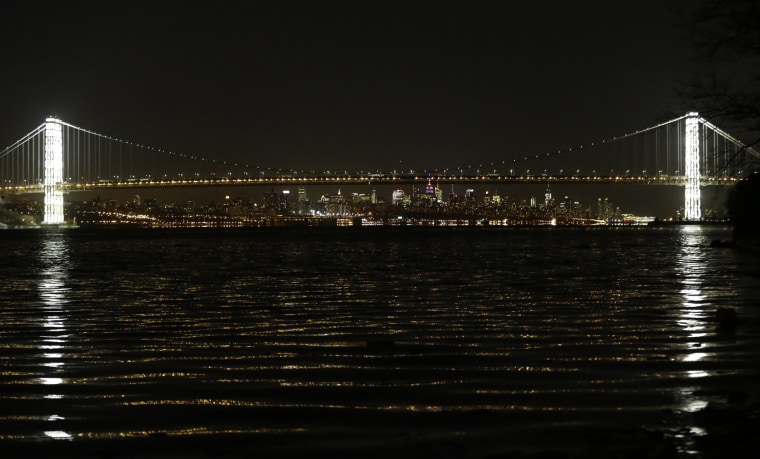We've learned quite a bit about New Jersey Gov. Chris Christie's (R) scandals over the last couple of months, including the fiasco surrounding the George Washington Bridge lane closures, but there are some core, foundational questions that haven't been answered. Indeed, these are questions neither the governor's team nor any of its allies have made even the slightest effort to address.
It remains unclear, for example, exactly who conspired to use the power of the Christie administration to deliberately cripple a New Jersey community last September. It's equally unclear why members of Team Christie hatched and executed their plot.
And then there's the cover-up of the administration's admitted misdeeds. It's this third angle that garnered some attention over the weekend, including an
interesting piece from the
Bergen Record's Mike Kelly, who reported that state investigators are asking a simple question: why did Port Authority police tell angry motorists to blame the Democratic mayor of Fort Lee?
That question, which has lingered for months, may no longer be dismissed as just a footnote in the controversy now enveloping the Christie administration over whether the traffic snarl that overwhelmed Fort Lee's streets for parts of five days was really political retribution. A special state legislative committee examining the scandal now plans to investigate whether the call-the-mayor instructions were really a way of getting the message to Fort Lee Mayor Mark Sokolich, a Democrat, that the crippling traffic jams were punishment for his failure to endorse the reelection of Governor Christie, a Republican who had been touted as a possible future presidential candidate. "It appears that someone issued instructions or talking points," said Assemblyman John Wisniewski, the co-chairman of the special Assembly-Senate committee investigating the lane closure scandal. "Someone orchestrated that."
Almost immediately after the Christie administration deliberately paralyzed Fort Lee, locals started demanding answers. For reasons that remain unclear, Kelly explained, Port Authority police officers at the scene told furious drivers they should call the mayor or borough officials.
The implication was hardly subtle: those looking for someone to blame should look at Sokolich. In reality, that didn't make any sense, so why did the officers tell motorists something that wasn't true? Or more to the point, who told the officers to convey false information?
This isn't some tangent. To learn who was responsible is to better understand why Team Christie did this and who helped orchestrate the cover-up.
At this point, it's still unclear why Port Authority police said what they said, but it's clear state lawmakers looking into the scandal consider this important.
"It goes to the whole issue of abuse of power and efforts to conceal," Wisniewski told Kelly. "It's an important issue that we ultimately need to dive into."
A Port Authority police officer with personal ties to New Jersey Gov. Chris Christie was at the George Washington Bridge when access lanes were closed last September and personally drove David Wildstein, the Christie appointee who supervised the closings, on a tour of the area as traffic brought it to a standstill. Documents submitted to a New Jersey legislative committee by Wildstein also show that the officer, Lieutenant Thomas "Chip" Michaels, appears to have sent periodic text messages to Wildstein updating him on the effects of the lane closures and their crippling impact on the town of Fort Lee. In one message, on the first day of the lane closures, Michaels told Wildstein he might have an idea to "make this better." It is not clear what he meant.
Related video:
